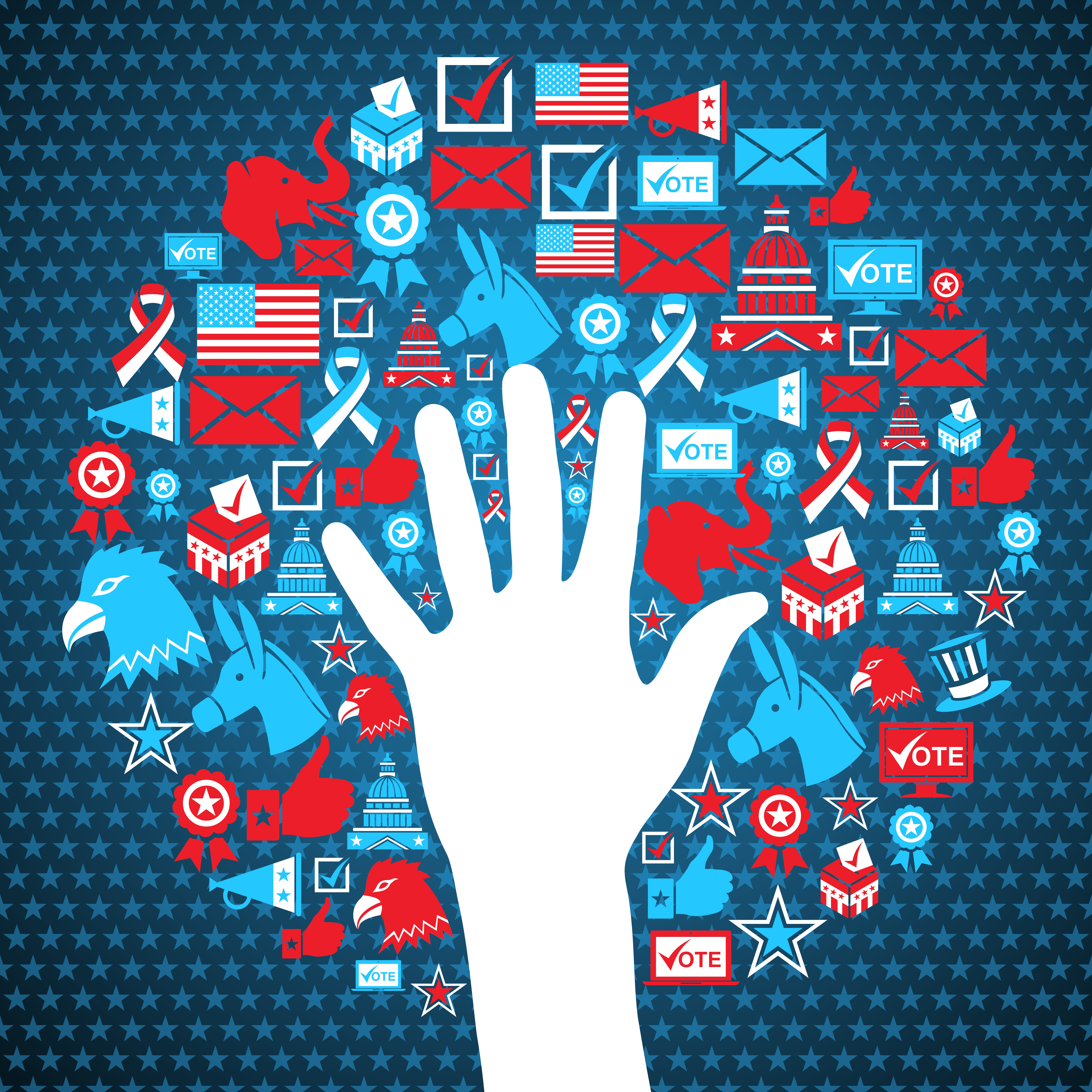 Political experts from DePaul University are available to discuss Illinois elections. (Image by iStock)
Political experts from DePaul University are available to discuss Illinois elections. (Image by iStock)CHICAGO — As Illinois voters prepare for state primary races March 20, DePaul University faculty experts are available to provide insight and commentary. Their expertise includes self-funded campaigns, the influence of national politics on local races, endorsements, changes in political communication, ethical leadership, the role of social media, and political marketing. Experts include:
Self-funded campaignsWilliam Sampson, Professor and Chair of Public Policy Studies, College of Liberal Arts and Social Sciences. Sampson’s research is on the intersection of race, class and power. "As long as the law allows almost unlimited private funding for candidates, the wealthy will have a big advantage," Sampson said. "While self-funding a campaign means the candidate owes nothing to financial supporters, this clearly means that only the very wealthy can run effective and costly campaigns." He can be reached at 773-325-7335 or
bsampson@depaul.edu.
Influence of national politics on local racesBruce Evensen, Professor of Journalism, College of Communication. Evensen is a former journalist who examines the role of the press in the political process and how mass media shapes perceptions of candidates. He has noticed how national politics and President Donald J. Trump has influenced local races, including ones in Illinois. "Gubernatorial candidate J.B. Pritzker is running against Trump as much as he is against Illinois Gov. Bruce Rauner with Pritzker’s single-payer health care plan," Evensen said. He can be reached at 312-362-7616 or
bevensen@depaul.edu.
Political communicationBenjamin Epstein, Assistant Professor of Political Science, College of Liberal Arts and Social Sciences. Epstein researches how political communication has changed in the U.S. over time and the intersection of the Internet and politics today. "Political communication changes have created greater potential for more people to gather, create, and share political information, but it has also created new challenges for both the creators and consumers of political information," said Epstein. In a forthcoming book, "The Only Constant is Change," Epstein explores the technological, behavioral and political roles that interact in the recurring process of political communication change. "The current period of rapid political communication change actually has a long history that can help provide insights into how, why and when various political actors innovate their strategies and where our political communication practices might be headed," he said. Epstein can be reached at
bepstein@depaul.edu.
Ethical leadershipJaclyn Jensen, Associate Professor of Management, Driehaus College of Business. "Ethics plays a significant role in state and local elections as it is directly related to acting with integrity, a quality that is essential for leadership success," said Jensen, whose research interests include ethical leadership and organizational behavior. "If elected officials can’t be expected to act ethically or are transparent and honest only when it suits them, then I question whether they really represent the best interests of the electorate or are simply working to advance their own agenda," she said. Jensen can be reached at 312-362-6852 or
jjense10@depaul.edu.
Social media’s influence on political campaignsPaul Booth, Associate Professor of Media and Cinema Studies, College of Communication. A candidate’s social media presence, memes about issues important to candidates, and news about Illinois shared on Facebook, play "a very strong role’ in Illinois elections, said Booth. "Social media affects not only how people think about the issues, but also how people end up voting," he noted. Booth can be reached at 312-362-7753 or
pbooth@depaul.edu.
Political marketingBruce Newman, Professor of Marketing, Driehaus College of Business. Newman is at the forefront of examining the role of marketing in political campaigns. He is the founding editor-in-chief for the Journal of Political Marketing and the author of "The Marketing Revolutions in Politics" and "Brand," which establishes the best branding practices Donald J. Trump used to win the 2016 presidential election. Newman can be reached at 312-362-5186 or
bnewman@depaul.edu.
###
Media Contact:Lorene Yue
Lyue3@depaul.edu312-362-7788